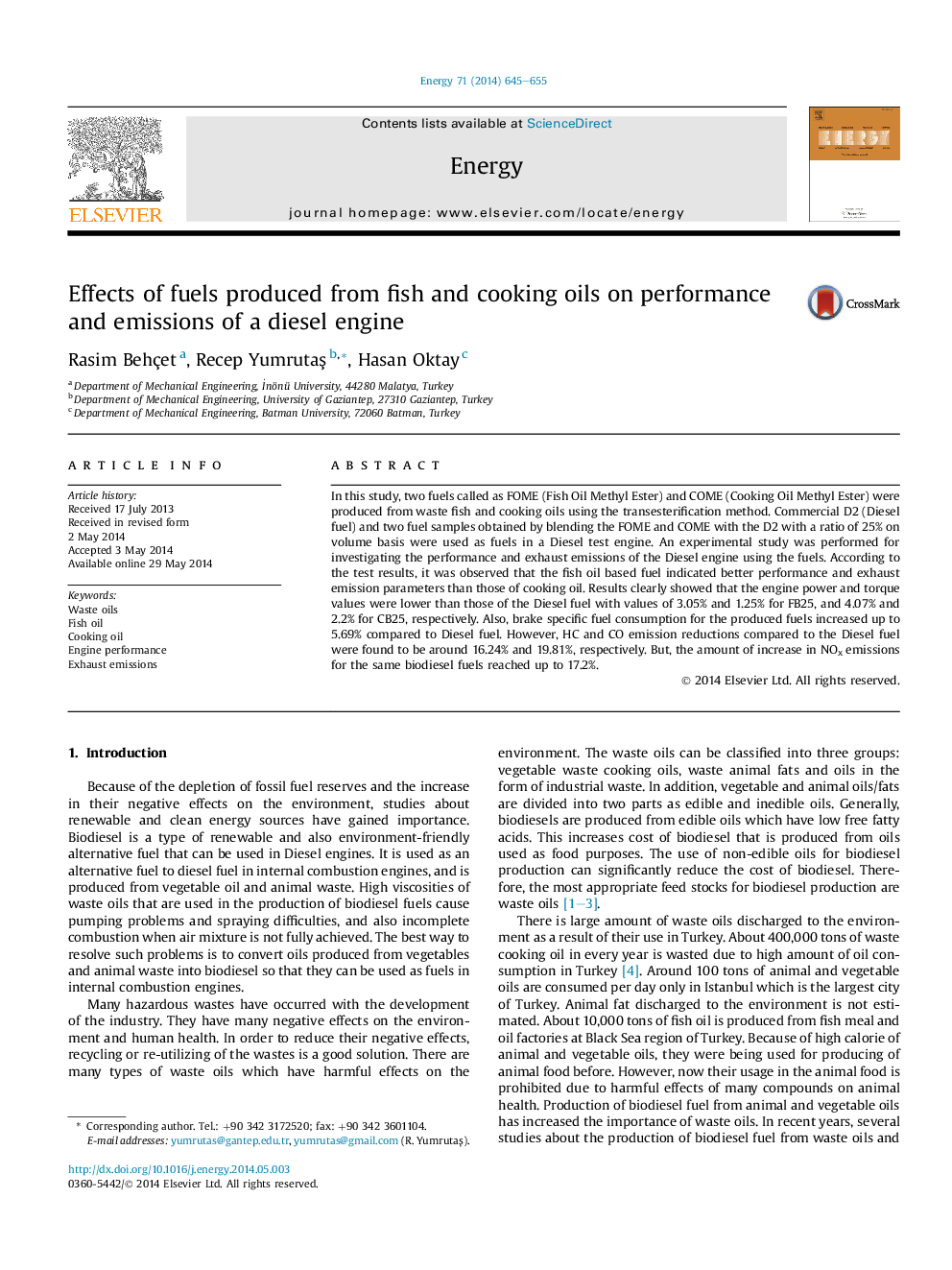| کد مقاله | کد نشریه | سال انتشار | مقاله انگلیسی | نسخه تمام متن |
|---|---|---|---|---|
| 1732424 | 1521475 | 2014 | 11 صفحه PDF | دانلود رایگان |
• Two types of biodiesel fuels were produced from waste fish and cooking oils by using transesterification method.
• Each of these fuels was blended with commercial standard with a ratio of %25 vol.
• The blend fuels were used in a diesel engine to examine their effects on engine performance and emissions.
• Performance and emission parameters for the blend fuels of FB25 and CB25 were closer to those of the D2.
• It was concluded that the blend fuels can be used in diesel engines without any problem.
In this study, two fuels called as FOME (Fish Oil Methyl Ester) and COME (Cooking Oil Methyl Ester) were produced from waste fish and cooking oils using the transesterification method. Commercial D2 (Diesel fuel) and two fuel samples obtained by blending the FOME and COME with the D2 with a ratio of 25% on volume basis were used as fuels in a Diesel test engine. An experimental study was performed for investigating the performance and exhaust emissions of the Diesel engine using the fuels. According to the test results, it was observed that the fish oil based fuel indicated better performance and exhaust emission parameters than those of cooking oil. Results clearly showed that the engine power and torque values were lower than those of the Diesel fuel with values of 3.05% and 1.25% for FB25, and 4.07% and 2.2% for CB25, respectively. Also, brake specific fuel consumption for the produced fuels increased up to 5.69% compared to Diesel fuel. However, HC and CO emission reductions compared to the Diesel fuel were found to be around 16.24% and 19.81%, respectively. But, the amount of increase in NOx emissions for the same biodiesel fuels reached up to 17.2%.
Journal: Energy - Volume 71, 15 July 2014, Pages 645–655
